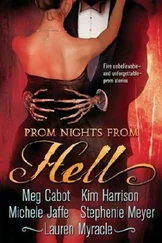Proxmire used his daily soliloquy to rebut common American misperceptions that had persisted since Lemkin’s day. Powerful right-wing isolationist groups would never come around. But most Americans, the senator believed, did not really oppose ratification; they were just misinformed. “The true opponents to ratification in this case are not groups or individuals,” Proxmire noted in one of 199 speeches he gave on the convention in 1967. “They are the most lethal pair of foes for human rights everywhere in the world—ignorance and indifference.” 70He used the speeches to educate. As critics picked apart the treaty and highlighted its shortcomings, he responded, “I do not dismiss this criticism or skepticism. But if the U.S. Senate waited for the perfect law without any flaw…the legislative record of any Congress would be a total blank. I am amazed that men who daily see that the enactment of any legislation is the art of the possible can captiously nit pick an international covenant on the outlawing of genocide.” 71
Proxmire believed the United States could be doing far more in the court of public opinion to impact state and individual behavior. “The United States is the greatest country in the world,”he said. “The pressures of the greatest country in the world could make a potential wrongdoer think before committing genocide.” 72But the United States neither ratified the UN genocide convention nor denounced regimes committing genocide. U.S. military intervention was not even considered.
Initially, Proxmire thought it might take a year or two at most to secure passage. “I couldn’t think of a more outrageous crime than genocide, “he recalls.” Of all the laws pending before Congress, this seemed a no-brainer.” On the floor he listed other treaties that the Senate had endorsed in the period it had allowed the convention to languish:
Included among the hundred-plus treaties are a Tuna Convention with Costa Rica, a bridge across the Rainy River, a Halibut Convention with Canada, a Road Traffic Convention allowing licensed American drivers to drive on European highways, a Shrimp Convention with Cuba…a treaty of amity with Muscat and Oman, and even a most colorful and appetizing treaty entitled the “Pink Salmon Protocol.” I do not mean to suggest that any of these treaties should not have been ratified…But every one…has as its objective the promotion of either profit or pleasure. 73
The genocide convention, by contrast, dealt with people. Because it did not promote profit or pleasure for Americans, it did not easily garner active support. Opponents of the treaty were more numerous, more vocal, and in the end more successful than Proxmire could have dreamed. Undeterred by failure, Proxmire would continue his campaign into the next decade. Indeed, nineteen years and 3,211 speeches after casually pledging in 1967 to speak daily, Proxmire would still be rising in an empty Senate chamber, dressed in his trademark tweed blazers and his Ivy League ties, insisting that ratification would advance America’s interests and its most cherished values.
Chapter 6 Cambodia: “Helpless Giant”
On April 17, 1975, eight years after Proxmire began his campaign to get the United States to commit itself to prevent genocide, the Khmer Rouge (KR) turned back Cambodian clocks to year zero. After a five-year civil war, the radical Communist revolutionaries entered the capital city of Phnom Penh, triumphant. They had just defeated the U.S.-backed Lon Nol government.
Still hoping for a “peaceful transition,” the defeated government welcomed the Communist rebels by ordering the placement of white flags and banners on every building in the city. But it did not take long for all in the capital to gather that the Khmer Rouge had not come to talk. After several days of monotonous military music interspersed with such tunes as “Marching Through Georgia” and “Old Folks at Home,” the old regime delivered its last broadcast at noontime on the 17th. 1The government announcer said talks between the two sides had begun, but before he could finish, a KR official in the booth harshly interrupted him: “We enter Phnom Penh not for negotiation, but as conquerors.” 2
The sullen conquerors, dressed in their trademark black uniforms, with their red-and-white-checkered scarves and their Ho Chi Minh sandals cut out of old rubber tires, marched single file into the Cambodian capital. The soldiers had the look of a weary band that had fought a savage battle for control of the country and its people. They carried guns. They gathered material goods, like television sets, refrigerators, and cars, and piled them on top of one another in the center of the street to create a pyre. Influenced by the thinking of Mao Zedong, the Khmer Rouge leadership had recruited into their army those they deemed, in Mao’s words, “poor and blank,” rather than those with schooling. “A sheet of blank paper carries no burden,” Mao had noted, “and the most beautiful characters can be written on it, the most beautiful pictures painted.” 3
Upon arrival, the only burden the KR cadres carried was that of swiftly executing orders from their higher-ups, who were removed from sight. Over the radio and mobile megaphones, they began blasting their demand that citizens leave the capital immediately. As a rationale, the militant newcomers claimed that American B-52 bombers were about to “raze the city.” The KR insisted that only a citywide exodus would guarantee citizens’ safety. Purposeful Communist soldiers filed into the city on one side of Phnom Penh’s leafy boulevards, while on the other side hundreds of thousands of ashen-faced Cambodian civilians tripped over one another to obey the KR’s inflexible orders. Over the next few days, more than 2 million people were herded onto the road. KR soldiers slashed the tires of cars around the capital, and citizens trundled along on foot, moving no quicker than a half a mile an hour. In scenes reminiscent of the Turkish deportation of the Armenians in 1915, unwieldy crowds clogged the roads, leaving in their wake stray sandals, clothing, and in some cases expired bodies. The first sign for most Cambodians and foreigners that this revolution would be like no other was the sight of the city’s main Calmette Hospital being emptied at gunpoint. Scattered among the anxious citizenry were patients dressed in wispy hospital gowns, wheeling their own IVs, carrying fellow patients in their arms, or being pushed in their hospital beds by their trembling loved ones. The infirm collapsed for lack of water, babies were born at the side of the road, heat-struck children squealed for maternal succor, and fathers and husbands cowed before the guns in command. Some Cambodians made their way to the French embassy and pleaded for asylum, hurling themselves against the barbed wire that ringed the compound and flinging their suitcases and even their children over the walls. But most Cambodians meekly trudged away from their homes.
Although the symptoms of the Khmer Rouge evacuation of Phnom Penh bore a superficial resemblance to the symptoms of what we now know as “ethnic cleansing,” the KR did not really discriminate on ethnic grounds. The entire capital was to be emptied.
All but a few American citizens had already departed. One week before, on April 12, 1975, as the KR closed in on the capital, U.S. ambassador John Gunther Dean had led the evacuation of the embassy staff and American nationals. Lon Nol, the U.S.-backed head of state, fled with a tidy sum of U.S. money in his pocket for “retirement” and bought a home in an upper-middle-class suburb east of Honolulu. Prince Sirik Matak, a former Lon Nol ally and premier who had recently been placed under house arrest because of his criticisms of the corrupt Cambodian regime, was released and tapped to become the official head of state. At 7 a.m. on the morning of the evacuation, Ambassador Dean offered Matak a place on a departing U.S. helicopter. Matak, whose apartment was decorated with photographs of President Richard Nixon and Vice President Spiro Agnew, idolized the United States. At 9 a.m. Dean received a handwritten note from Cambodia’s new leader, who thanked Dean for his offer of transport but said, “I cannot, alas, leave in such a cowardly fashion.”The letter continued:“As for you and in particular for your great country, I never believed for a moment that you would [abandon] a people which has chosen liberty. You have refused us your protection and we can do nothing about it…If I shall die here on this spot in my country that I love…I have only committed this mistake of believing in you, the Americans.” 4Dean, himself a childhood refugee from Hitler’s Germany, boarded a helicopter carrying the U.S. flag folded under his arm. Matak took shelter at the French embassy, where foreigners had already begun to gather, and hoped for the best.
Читать дальше












